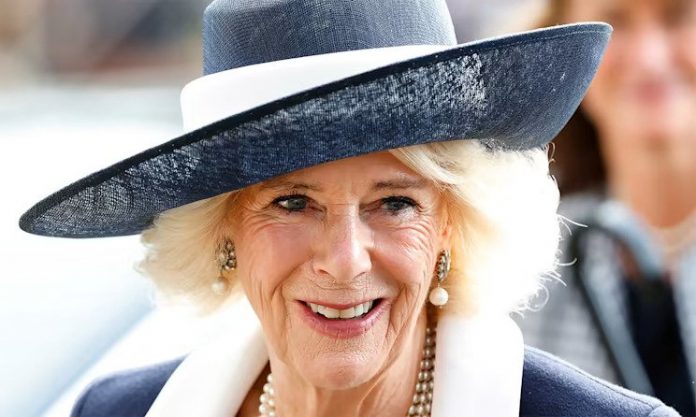Queen Consort Camilla has taken to Twitter to share a rare public message after making a speech at a Violence Against Women and Girls Event.
“We are uniting today to confront, rightly, what has been called a global pandemic of violence against women. Faced with such challenges, it can be hard to know what practical steps we can take to even begin to make a difference,” the tweet read and was signed off: “Her Majesty, The Queen Consort.”
The event saw Camilla joined by Queen Rania of Jordan, Queen Mathilde of Belgium, Crown Princess Mary of Denmark, and the Countess of Wessex as they hosted a reception at Buckingham Palace to raise awareness of violence against women and girls as part of the UN 16 days of Activism against Gender-Based Violence.
Guests of honour included Olena Zelenska, the first lady of Ukraine, former Spice Girl Mel B and television presenter Lorraine Kelly, and Carrie Johnson, the wife of former prime minister Boris Johnson.
Camilla also met reality TV star Zara McDermott, who has spoken about her efforts to end the scourge of “revenge porn”.
Tuesday’s speech marked Camilla’s first as Queen Consort since the death of Queen Elizabeth II
“We are uniting today to confront, rightly, what has been called a global pandemic of violence against women. Faced with such challenges, it can be hard to know what practical steps we can take to even begin to make a difference.”
– Her Majesty The Queen Consort — The Royal Family (@RoyalFamily) November 29, 2022
“We are uniting today to confront, rightly, what has rightly been called a global pandemic of violence against women,” she said.
“Faced with such challenges, it can be hard to know what practical steps we can take to even begin to make a difference.
“Over the years, in my previous role, I had the privilege of meeting many survivors of rape and domestic abuse; and of sharing in the sorrow of people who had lost family members to violence. And again and again, I heard that two of the most powerful ways in which to help were to remember and to listen.”
“We refuse to be desensitized by cold facts and figures and we resolve to keep the names and the memories of these women alive,” she continued.
“I have learnt from my conversations with these brave survivors that what they want, above all, is to be listened to and believed, to prevent the same thing happening to others. They know there is power in their stories and that, in the telling, they move from being the victims of their histories to the authors of their own futures.
“I have heard countless examples of the ways in which victims have become victors, using their experiences to hold out a hand to help others escape abuse.”






